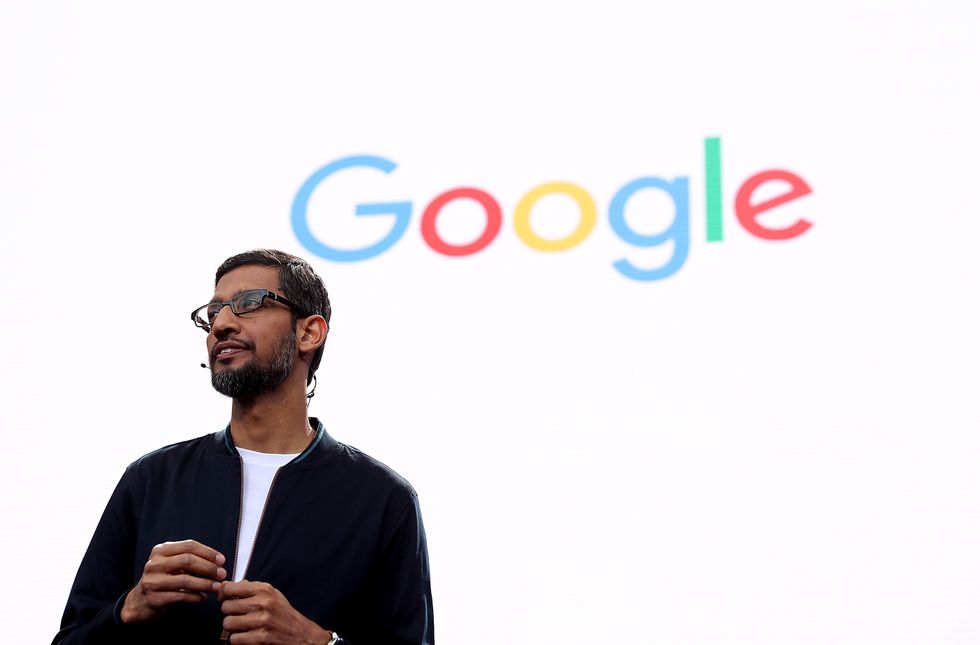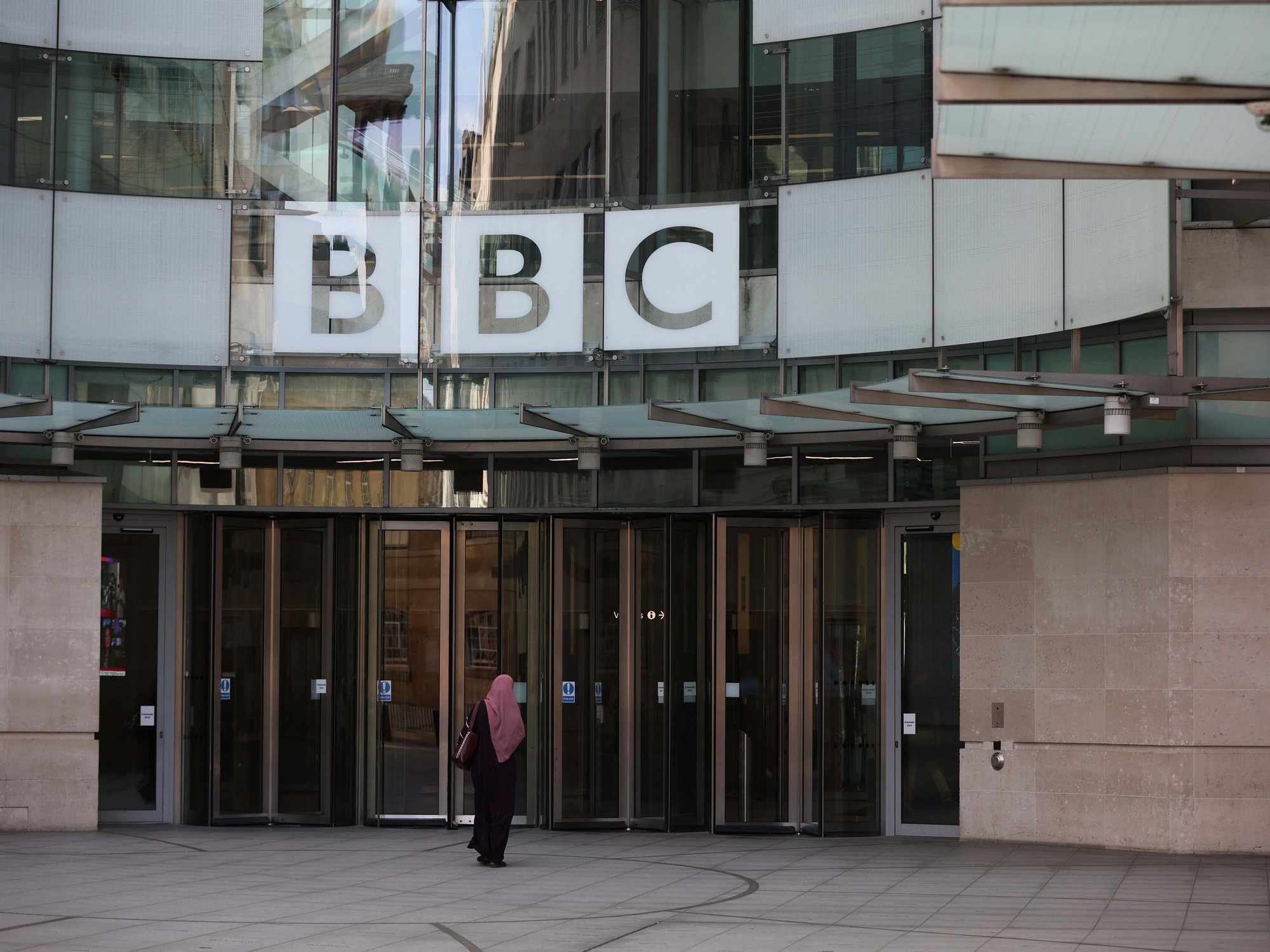Facebook, Instagram, and YouTube littered with scam adverts, Which? warns as UK suffers ‘epidemic of fraud’

Consumer watchdog Which? scoured popular social networks and search enginers, including Google and Bing, to hunt for examples of scam adverts plaguing users in the UK
|GETTY IMAGES

Adverts for copycat products and fake endorsements from celebrities like Martin Lewis were uncovered in the study
- £2.3 billion was lost to fraud in UK last year, double the figure from 2022
- Scam adverts plague social networks like Facebook, Instagram, and TikTok
- Search engines Google and Bing are also littered with fraudulent ads
- New research from watchdog Which? shows the scale of the problem online
Don't Miss
Most Read
Latest
Scam adverts are commonplace on the most popular social networks and search engines, new research a consumer watchdog has cautioned. Which? found fraudulent adverts across Facebook, Instagram, TikTok, X (formerly Twitter), and YouTube, as well as search engines Google and Bing.
Posts that used fake endorsements from celebrities, adverts for copycat products of well-known brands, and investment scams were all unearthed by Which? during its research, which took place between November and December last year.
Fraud has reached record levels in the UK. Research from BDO, the fifth-largest accounting network on the planet, shows that fraud cost the UK £2.3 billion last year — more than double the figure from 2022 and the second-highest annual total recorded by BDO in two decades.
What makes this figure even more concerning is that it likely only represents a small fraction of the fraud that takes place, since many organisations do not disclose figures.
The Crime Survey for England and Wales reports that fewer than one in seven fraud offences are reported to law enforcement, hinting at the dizzying levels of fraud that could be really taking place across the UK.

Google, which is owned and operated by the same parent company as YouTube, was one of the online services investigated by Which? in its most recent report
| GETTY IMAGESThe Online Safety Act, which received Royal Assent at the end of last year, is designed to put a stop to the fake adverts plaguing popular online platforms. However, the Act will not officially come into force on scam adverts until Ofcom finalises its Code of Practice, which the industry regulator will use to set a common standard that social networks, search engines, and other platforms must meet.
On Meta’s ad library, Which? found Facebook and Instagram hosting multiple copycat adverts impersonating major retailers around the time of the Black Friday sales, including electricals giant Currys plus clothing brands River Island and Marks & Spencer. Each advert attempted to lure victims to bogus sites in a bid to extract their payment details.
On YouTube and TikTok, Which? found sponsored videos in which individuals without Financial Conduct Authority authorisation gave often “highly inappropriate” investment advice.
On X, an advert led to a fake version of the BBC website that featured an article falsely using Martin Lewis to endorse a company which promoted itself as a crypto get-rich-quick platform.
Beneath the scam advert was a note added by X to provide additional context added by other users on the website, a feature known as Readers' Notes. It warned that: “This is yet another crypto scam using celebrities.” But despite the warning from the community, the advert on X remained live.
When researchers posed as drivers searching on Google for the “paybyphone app” to pay for parking, they were confronted with two adverts for impostor websites – onlytelephone.com and homeautomationinnovators.com – appearing at the top of search results and using PayByPhone’s logo without permission.
Both websites claimed to offer a “free download”, but included identical small print at the bottom of their websites revealing a monthly charge of £24.99. PayByPhone confirmed that the advertisers had nothing to do with its genuine parking app.
Which? said it was concerned that its latest findings suggested online platforms are not taking scam adverts seriously enough. It has called for a new Government Minister dedicated to fraud to ensure the problem becomes a “national priority”.
Microsoft, the owner of Bing, and TikTok were the only platforms to tell Which? they had removed the scam or harmful content reported to them. However, Facebook, Google, Instagram and X did not report back to Which? on whether the adverts reported to them had been blocked or removed.
Which? director of policy and advocacy, Rocio Concha said: “Most of the major social media platforms and search engines are still failing to protect their users from scam ads, despite forthcoming laws that will force them to tackle the problem.
“Ofcom must put a code of conduct in place that puts robust duties on platforms to detect and take down scams using the Online Safety Act.
"The Government needs to make tackling fraud a national priority and appoint a fraud minister who can ensure there is a coordinated pushback against the epidemic of fraud gripping the UK.”
Google, also the parent company of YouTube, said: “Protecting users is our top priority and we have strict ads policies that govern the types of ads and advertisers we allow on our platforms.
"We enforce our policies vigorously, and if we find ads that are in violation, we remove them. We continue to invest significant resources to stop bad actors and we are constantly evaluating and updating our policies and improving our technology to keep our users safe.”
LATEST DEVELOPMENTS
- Microsoft racing to fix ‘critical’ security flaw used by hackers
- Windows 10 users who want to avoid paying new fees given lifeline by Google
- Want to improve your credit score? New UK network does something EE can't
- This website wipes all trace of your personal data from the internet
- Google issues new warning for Chrome users about tracking in Incognito Mode
- End of the satellite dish? Sky Q slowly phased out as Sky prioritises streaming
TikTok said its guidelines prohibited fraud and scams, adding that it had removed all the videos shared by Which? that violated these terms, as well as a number of related accounts.
Microsoft, Bing’s owner, told Which? that its policies prohibited advertising content that was deceptive, fraudulent, or could be harmful to users. It also confirmed that it had removed any content flagged by the watchdog during its research.
Additional Reporting By Josie Clarke, PA Consumer Affairs Correspondent










